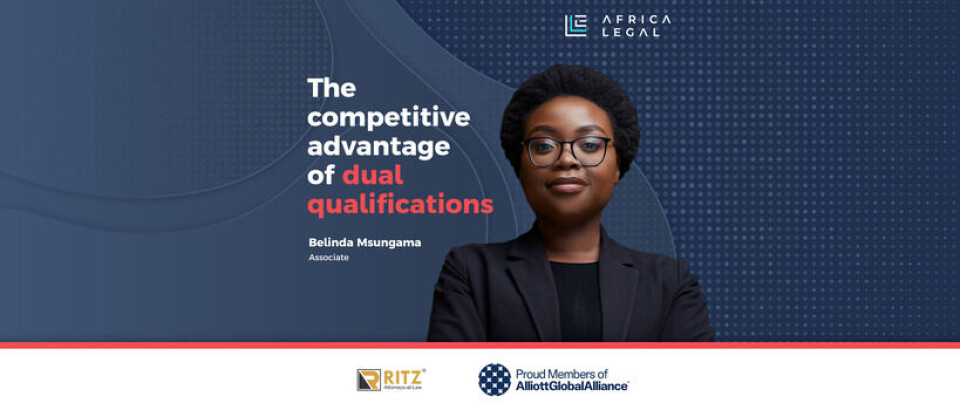African lawyers with dual qualifications can enhance a corporate practice and benefit clients with their cross-cultural communication skills, ability to adapt and ability to minimise ambiguity, beyond any specific knowledge or expertise in two jurisdictions, says Belinda Msungama.
“I think the world right now is becoming more interconnected, a little more every year, so having an international qualification alongside an African one helps you stand out compared to other young lawyers,” commented Msungama, who completed an LLM at Cornell University and is qualified in New York as well as Malawi, where she now works for Ritz Attorneys at Law.
“With dual qualifications you already have a certain level of experience working outside your comfort zone, and would have gained intercultural communication skills and other interpersonal skills you may not have learnt if you just worked out of your own home environment.”
For Msungama, her New York qualification helps not only with legal issues in matters involving US companies operating – or looking to operate – in Malawi and southern Africa, but also with cross-border work and transactions involving companies from other nations.
“My dual qualifications help me navigate through legal issues a little bit easier and help me ensure our clients are compliant in both jurisdictions,” she explained. “Having had exposure to New York corporate law, especially in an academic way, I have more of an understanding of American business practices and standards, which is valuable when dealing with US companies. US law and standards can also be adopted in a lot of cross-border and international transactions.”
Msungama believes Ritz Attorneys at Law has a competitive advantage by having lawyers with international qualifications on their staff, especially given the firm’s membership of Alliott Global Alliance, a group of elite and independent legal and accounting experts in some 100 countries.
Being familiar with general US business practices when it comes to deal structuring and negotiation and due diligence can be very valuable in cross-border transactions, she added.
“I’d say in the US there is a little more focus on dealing efficiently in negotiation, and having clear and concise contracts. This is crucial to ensuring clarity and minimising ambiguity in cross-border transactions when dealing with African counterparts. I understand how a US firm would generally want to deal with contract negotiation, and we can lean towards adopting a sense of that when representing a client. It also translates to less popular things like due diligence.”
The ability to adapt is key when it comes to cross-border transactions, says Msungama, who emphasises that it’s all about what needs to be done to ensure the process runs as smoothly as possible.
Earning dual qualifications can be a steep learning curve because you’re put in new and unfamiliar contexts, but once you’ve done it once it can be easier to deal with other foreign companies and jurisdictions, she pointed out. “My Master’s degree was completed in a very international environment, even though it was US-based, and I now have networks all over the world.”
To join Africa Legal's mailing list please click here

